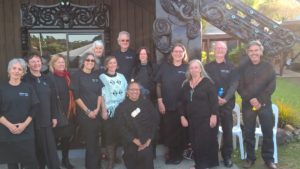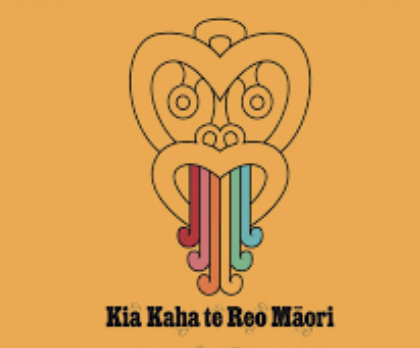‘Language is the window to the soul’

Shirin Brown, migrant, language teacher, and currently standing for Labour in Tāmaki, shares why Te Wiki o Te Māori is important to her. She was born in Iran of a British, Jewish father and Indian, Zoroastrian mother. So, Brown has a personal awareness of the opportunities and challenges of working across different languages and cultures.
Why is Māori language week important to me?
I think it’s a great reminder for us all to speak in the Māori language and try out different phrases and develop our confidence or take our learning to the next step. It also normalises Te Reo in the workplace or in schools and shows respect for Treaty of Waitangi principles. I think we should really try and speak Te Reo in as many situations as we can, but it’s hard when people don’t speak it on the street.
My favourite experience of Te Wiki or Te Reo Māori was about three years ago when I was sitting on the ferry, with bilingual speakers. Normally they would have all spoken English, but because it was Māori Language Week, they spoke Te Reo and it was great for me to hear them having a conversation and join in with the few words I know.
Why should we speak Te Reo, it’s only spoken in New Zealand?
I get asked this a lot as a language teacher. Well, the answer is in the question, isn’t it? If this is the only place it’s spoken then it’s part of our cultural heritage and it becomes part of the heritage of those who migrate here. Language is a window on culture and speaking different languages broadens our horizons.
Studies show that people who speak more than one language, are often more tolerant, and are more likely to recognise that every problem can have a multitude of solutions rather than one right answer. Te Reo Māori is part of a raft of Polynesian languages which also includes languages such as Samoan, Tongan, Hawaiian, Tahitian and Rapanui, so it belongs to a cultural heritage that actually goes beyond our shores anyway and between them covers a massive area of the Pacific.
Wouldn’t it be better if people learnt a more useful language?
Again, language is a window to culture and different ways of understanding an issue. It also forms part of an identity. I hear a lot of people who’ve come back from overseas wishing they’d spent more time learning a haka or had had the opportunity to learn some Te Reo Māori. So it’s grounding to know something of the place you live in that is unique to this place, and us as people who live here. Besides which, learning expands the mind and the mind is infinitely capable. Interestingly, those of us who come from cultures with multiple national and regional languages feel comfortable speaking a mix of languages and using a mix of words, whereas those from a monolingual culture tend to hold out for linguistic purity. Learning language is a great experience, the more the merrier!
Should Te Reo be taught in schools?
Yes, I think all kids should have the benefit of learning Te Reo Māori at primary school. Ideally we’d also have a greater range of other languages also offered in primary school. In other countries a foreign language is part of primary school education.
What do you think about the fact that speaking Te Reo Māori is a kind of cultural appropriation, so only Māori people should learn Te Reo Māori?
I think people’s intention is important and we should always be mindful and respectful. If people are learning Te Reo Māori to show they respect the Treaty Principles and Te Ao Māori, then it’s a good thing. If it’s just an excuse to get a better job or it is used to speak for others, then it’s not really genuine and also not fair.
However, sometimes it is a non-Māori person that does know a karakia or know something that is relevant from a cultural perspective. So it’s waiting for that information to be asked of you and seeing if anyone else there has it before you jump in. And we all need to do our bit to keep Te Reo alive, I think. For the language to be strong, we all need to value it, not just make it the responsibility of Māori people to protect and preserve the language.
Also, giving thanks and appreciation, are less familiar concepts in English but really add value in bringing people together in a space. So acknowledging and using approaches from Te Ao Māori can benefit us all, even in non-Māori spaces, and remind us we are working in a bicultural and often multicultural context.
My mother is Zoroastrian, which is one of the oldest continuously practiced religions on earth; some evidence suggesting it dates from the 5th Century BC. However, with more people marrying out of the religion, it is expected to die out in the next fifty years. With Te Reo Māori, there are twice as many people in their 70s speak it as the under 15s. We all need to be on board with learning it, valuing and speaking it, to ensure it is valued into the next generations.

What can I do to learn some Te Reo Māori to connect with Te Ao Māori?
Check out courses at your local adult education centre or find a course through a local college. There are also free beginner language and culture courses offered online or by distance. I’ve done one through Te Wananga Aotearoa, and am now doing one through Whitireia.
There is also information online, check out Te Wiki o Te Reo Māori resources or Toku Reo Māori which has a mixture of vocabulary, structures, culture and listening practice.
Best of all, if you have a marae near you, drop in on an open day or go up there and introduce yourself. It might be a challenge until people get to know you. But once they do, you’ll be very welcome, especially if you can cook, know how to dry dishes or use a broom!
Learning a whakatauaki or a waiata can also be a great way to learn and you can often find them for different occasions. Here is one on language revitalisation and the importance of speaking Te Reo Māori:
Ko taku reo taku ohōho, ko taku reo taku mapihi mauria.
My language is my awakening, my language is the window to my soul.













